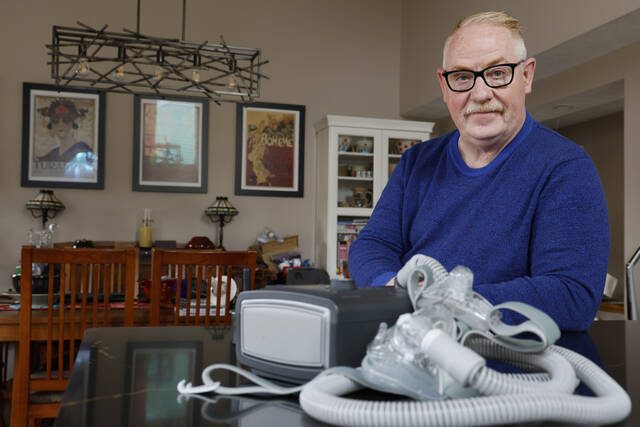WASHINGTON — The company responsible for a global recall of sleep apnea machines will not be allowed to start making them again at U.S. facilities until it fulfills several safety requirements, according to a long-awaited agreement announced Tuesday by federal officials.
Philips will have to revamp its manufacturing and quality control systems and hire independent experts to check the changes, as stated in a court order announced by the U.S. Department of Justice. The company must also keep replacing, fixing, or giving money back to all U.S. customers who received the faulty devices, according to the department.
This action is a significant move toward resolving one of the largest medical device recalls in history, which has been going on for nearly three years.
Most of the devices that were recalled are continuous positive airway pressure, or CPAP, machines. They push air through a mask to keep the airways open during sleep. If left untreated, sleep apnea can cause dangerous tiredness and increase the risk of heart attack.
Since 2021, Philips has recalled over 5 million of the machines because their internal foam can deteriorate over time, causing users to breathe in small particles and fumes while they sleep. Efforts to fix or replace the machines have been troubled by delays that have frustrated regulators and patients in the U.S. and other countries.
Attorneys for the federal government claimed that the company did not follow good manufacturing practices necessary to ensure device safety. However, the company did not admit to the claims, according to the court filing.
U.S. Attorney Eric Olshan said in a statement, “This office, the FDA and our partner agencies are committed to holding manufacturers accountable when they violate the law and put the public at risk.”
According to the legal agreement, Philips must bring in independent auditors to develop a plan for solving its manufacturing issues and for monitoring problems with the sleep devices. The plan must then be approved by the Food and Drug Administration. The experts must also confirm that the new foam selected by the company meets FDA safety standards.
Jeffrey Reed, of Marysville, Ohio, had persistent sinus infections and two cases of pneumonia during the seven years he used a Philips machine.
“I am concerned about my long-term health,” Reed said. “I used this machine for years and no matter what compensation I might get out of this, what’s going to happen?”
After returning his old machine, Reed was given a newer Philips device, but he prefers a competitor’s device and doesn’t like to use it.
“I don’t trust the company,” Reed said. “I don’t want to use it.”
Reed is one of over 750 people who have filed personal injury lawsuits against the company regarding the devices. These cases have been combined in a federal court in Pennsylvania.
The company reported that similar lawsuits are awaiting a decision in Canada, Australia, Israel, and Chile.
The Dutch manufacturer said in January that it had reached a tentative agreement with the FDA and the Department of Justice. However, U.S. regulators couldn’t confirm the deal at the time because a federal judge had not yet reviewed it.
A spokesperson for the company said on Tuesday that the agreement lays out a plan of specific actions, milestones, and results to meet necessary government rules. He pointed out that Philips will still be able to export some machines for sale outside the U.S.
The FDA's website cautions patients that the dangers of swallowing the sound-dampening foam could include headache, asthma, allergic reactions, and more severe issues.
During an FDA inspection of Philips' Pennsylvania offices in the autumn of 2021, a series of warning signs were found, including emails indicating that the company was notified about the problem with its foam six years before the recall.
Between 2016 and early 2021, the FDA identified 14 cases where Philips was informed about the problem or was investigating it. The FDA inspectors repeatedly pointed out that no further design change, corrective action, or field correction was carried out.
In 2022, the FDA made the rare decision to instruct Philips to improve its communication with customers about the recall, including providing clearer information about the health risks of its products. At that time, the agency estimated that only about half of the people in the U.S. with affected machines were aware of the recall.
Customers seeking refunds or new or refurbished devices from the company have reported significant delays.



